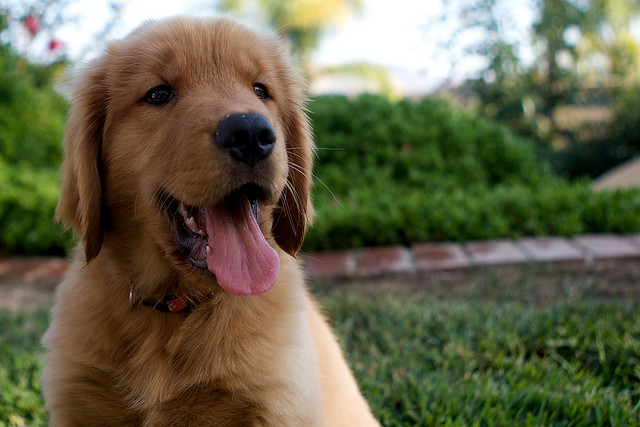*Warning: mentions suicide*
As I sat on the couch with Ollie sprawled over my lap, I sighed and mentioned to my husband that, yet again, another veterinarian has died by suicide. She was a mother with two little boys, a practice owner, and by all accounts seemingly happy. We can guess all we want about what desperation, what chemical lies, were swirling in her brain- but we will never know.
This sort of thing was shocking once, but now it’s a dejected “oh no, not again.” You’ve probably seen the word that we’re in crisis as a profession. It is beyond abnormal. It is a bitter truth about debt, pressure, and the unrelenting burdens of unrealistic expectations of a population already prone to self-flagellation. I am still haunted by my own friend’s passing right before Christmas last year. The pain of that loss never goes away.
But whenever this happens, I see the same cycle repeat itself: news comes out -> vets post on Facebook about our burdens and how clients need to be nicer -> widely shared. Be nicer! BE NICE people, we’re super stressed. And the people who read it are, of course, our friends and family and people who have always been kind, and then they feel terrible for something they really didn’t do. A few random strangers jump in to say “vets killed my cat, I hate them.” Rinse, repeat. We feel better having gotten it out of our system, and nothing changes.
We’re great at calling out the public, but each other- or even ourselves? Not so much.
Why are we a mess?
The challenges in the profession aren’t carrots that can be pulled out of the ground one by one. They’re a complicated root system, entwined with its neighbors, and as we clip off diseased branches here and there we find the same rot returning. The truth is, the problem isn’t the tree. It’s the ground we planted it in.
We plant our grads in poor quality soil and blame them when they fail to thrive. We blame the clients for being a blistering sun but neglect to pull our pots into the shade. We starve them of water and ask why they wither. We watch them bending in the wind and instead of sheltering them, we stand to the side and tell them how they could stand taller if they just tried. Maybe a little more yoga will do the trick.
We pretend toxic environments are the exception when the truth is all around us that they are not. Yes, this job is tremendously hard even in the best of circumstances, but the reality is we are far from providing the best of circumstances the vast majority of the time. We should demand better.
The lawsuit that wrecked me
Nearly all of us have endured some form of professional trauma. Almost ten years ago, a pet died at my clinic, and the owner sued me. What’s more, she went to the media. This was before Facebook was ubiquitous, and I can’t imagine how much worse still that might have been. The cameras in the lobby, the red-faced ‘consumer advocate’, the interrogations under oath, accusations of elder abuse.
Friends called me in horror each time the segment was played, and it was played a lot because that sort of thing is great for ratings. When I speak about crisis communications, I have the dubious benefit of having personally experienced the unrelenting stress the world passing judgment with all the wrong information.
All around me, people kept saying, “Don’t worry, you didn’t do anything wrong.” This is true. Both I and my team did everything we could, but you can’t shrug off 18 months of fighting in court even when you come out on top. I felt like a limp white flag flying in the breeze, all alone up on a pole.
The weird part is, the betrayal that stung the most wasn’t what this woman did. She was grieving and angry, and as much as I hated that she took it out on me by making me into an abusive jerk, I understood that she was in pain. She lied under oath about harassing phone calls I supposedly made, but “accidentally deleted” any recording. She told the news I was a murderer. That stays with you.
But what hurt even more was the ambivalence of everyone else around me, those who I hoped would understand how much this all devastated me, who shrugged and said I was fine when I really wasn’t.
For all our efforts we spend asking the general public for compassion, I would challenge you all to ask yourself: are we truly supporting each other the way we should? We talk a good game and we’re great when it comes to holding up our friends, but the very same people who talk up solidarity also share private Facebook posts with employers, snipe at one another in front of clients, and don’t hesitate to criticize another doctor’s performance based on nothing but client recollection. We tolerate tremendous toxicity. We normalize martyrs and ulcers.
The doctor who saved me
When I went to court for the final time (there were several rounds), the opposing lawyer subpoenaed a local veterinarian who had treated the dog in the past. There was something I said in the medical record that the lawyer believed contradicted something this vet had once done. She had to miss a day of work and come in to declare that either I lied or she didn’t perform a treatment appropriately. It was an irrelevant point other than it was a slam dunk to make me look bad in front of the judge. If anyone had a reason to be irritated with me, it was her.
I had no idea this was coming until the day of the trial, so when I saw what was happening, my heart sunk. She would be asked, “are you competent or is she a liar?” and my credibility would be toast.

She didn’t know me. She had every reason to agree with the lawyer’s accusation. But she did something extraordinary. She chose to help me.
In advance of the court date, she actually called experts, explained what was going on, and asked them if it was possible that both the claims were true: that she had done what she said she had done so many years ago, and that I saw what I said I saw the day the dog died. Could we both be right?
In court, as she told the judge about the calls she made, my lawyer objected- assuming she was about to nail me to the wall. The judge overruled, ruling that an expert opinion would be helpful. The other lawyer smiled.
She then relayed the expert opinion of a veterinary surgeon that yes, it was entirely possible that she had adequately treated the dog and my observations 5 years later were also correct. For no reason other than she anticipated the play of vet vs vet and chose to believe the better of me, she put in hours of free time to save me from a wrongful claim of negligence. I sat in shock as I realized what she had done for me.
The case against me was dismissed, and this doctor left without saying a word.
A week later, I received a card from her, telling me how sorry she was that I had been put through the wringer. She told me she wrote the client a letter firing her from her clinic. A decade later, I still can’t think about her act of compassion without tearing up. I have yet to see an act its equal.
Think about that for a minute. In 18 months of hurt, the one and only genuine act of support came from a stranger who held me up in my worst moment because she believed we needed to help one another. That act meant more than anything any client could have said or done.
We talk a big game, but when the dirt hits the fan, is this what you do? I don’t know what I would have done in her situation, but I doubt I would have done that. I have since challenged myself to her standard and find myself coming up short- because it is hard to be that deeply compassionate- but I keep trying.
This is a hard, hard job. I have never written about this painful chapter in my life until now, but it played a pivotal role in the choices I made from that point forward. I doubted myself for years. I challenge each of us to assess just how much we’re extending that same benefit of the doubt to each other that we demand from our clients. And while we can ask for clients to be better and for organized vet med to be better, the number one thing each of us has to contribute is the very hard work of doing better ourselves.
National Suicide Prevention Hotline is available 24/7: 1-800-273-8255. There are so many people out there who care and support you.






